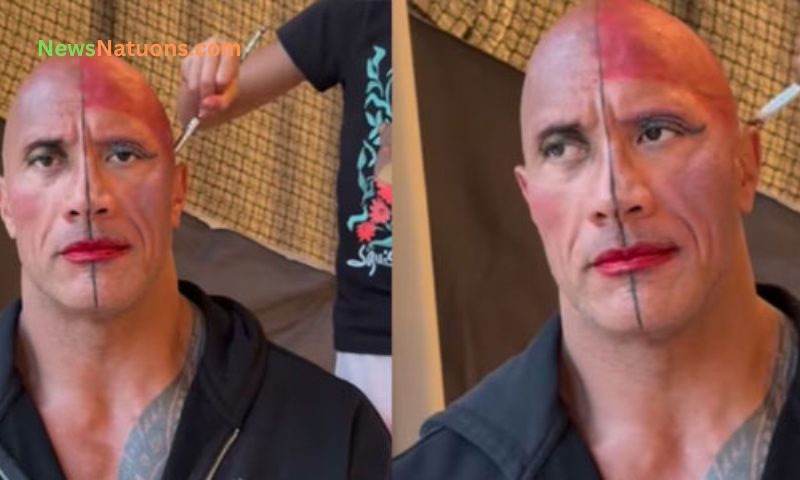The recent escalation of tensions between India and Pakistan, particularly following the April 2025 Pahalgam terror attack and India’s subsequent Operation Sindoor, has spilled over into the digital realm, with Pakistani actress Amar Khan becoming a target of abusive messages on Instagram. In a candid interview on Geo News podcast, hosted by Mubashir Hashmi, Amar Khan shared her distressing experiences, as reported by Jang News (June 28, 2025) and amplified by posts on X by @DailyQudrat and @arynewsud. She revealed receiving vulgar direct messages (DMs) from Indian users, containing profanities and inappropriate images, highlighting the toxic behavior of a small group of extremist trolls during the conflict. Her revelations shed light on the broader issue of online harassment amid geopolitical strife, underscoring the challenges faced by public figures in navigating cross-border tensions.
Context of Pak-India Tensions
The backdrop of Amar Khan’s ordeal is rooted in the heightened tensions between India and Pakistan, which intensified after the April 22, 2025, Pahalgam terror attack that claimed 26 lives, as reported by The Tribune (June 23, 2025). India’s retaliatory Operation Sindoor targeted alleged terrorist infrastructure in Pakistan and Pakistan-occupied Jammu and Kashmir, escalating into a brief but intense military confrontation involving artillery fire, missile strikes, and drone attacks, as noted by Reuters (June 19, 2025). This conflict, which ended with a U.S.-brokered ceasefire on May 10, fueled nationalist sentiments on both sides, leading to a surge in online vitriol. Indian authorities imposed a ban on the social media accounts of several Pakistani celebrities, including Mahira Khan and Hania Aamir, as reported by NDTV (June 22, 2025), further intensifying the digital divide. Amar Khan’s experience reflects how these geopolitical events have permeated social media, targeting individuals like her with hostility.
Amar Khan’s Revelations on Geo News Podcast
During her appearance on the Geo News podcast, Amar Khan opened up about the barrage of abusive messages she received from Indian users on Instagram, as detailed by Daily Times (June 28, 2025). She described the messages as deeply offensive, filled with “gandi galiyan” (vulgar abuses) and inappropriate language, accompanied by disturbing images. “I can’t even share what they sent me in DMs,” she told the host, emphasizing the extent of the harassment. According to posts by @jang_akhbar on X, Amar refrained from publicizing these messages, choosing instead to highlight their ignorance, stating, “If I showed what they sent, it would reveal how foolish these people are.” Her restraint in not sharing the content publicly underscores her intent to rise above the hate, while her comments expose the toxic nature of online trolling during such conflicts.
Nature of the Abusive Messages
Amar Khan’s account paints a grim picture of the online harassment she endured. The messages, as she described, were not only laced with profanity but also included inappropriate images, a tactic often used by trolls to intimidate and demean. Minute Mirror (June 28, 2025) reported that Amar condemned these actions as reflective of a small but vocal group of extremists with an agenda to provoke and divide. She noted, “These are just a few people who are extremists and have their own agenda.” The specificity of her complaints, echoed in posts by @arynewsud, highlights the targeted nature of the harassment, which went beyond mere criticism to personal attacks. This behavior aligns with a broader pattern of cyberbullying faced by Pakistani celebrities during periods of Indo-Pak tension, as seen in the backlash against Hania Aamir for her comments on Operation Sindoor, reported by Times of India (June 27, 2025).
The Role of Social Media in Amplifying Hate
Social media platforms like Instagram have become battlegrounds for nationalist sentiments, especially during India-Pakistan conflicts. The ban on Pakistani celebrities’ Instagram accounts in India, following the Pahalgam attack, as reported by IBTimes India (July 1, 2025), exacerbated the situation, with Indian users resorting to VPNs to access and target these accounts, according to NDTV (June 22, 2025). Amar Khan’s experience, as shared on the Geo News podcast, illustrates how such restrictions can fuel resentment, leading to abusive DMs. Posts on X by @geonews_urdu noted that the actress was particularly disheartened by the behavior of Indian trolls, who used the anonymity of social media to unleash hate. This phenomenon is not unique to Amar, as other Pakistani stars like Mahira Khan have also criticized the politicization of such bans, calling them a “political game,” as reported by Arab News (June 30, 2025).
Amar Khan’s Response to Trolls
Despite the vitriol, Amar Khan maintained a dignified stance, refusing to engage with the trolls or amplify their messages. In her interview, as cited by Jang News (June 30, 2025), she emphasized that the actions of a few do not represent the broader Indian public, stating that the trolls were a minority driven by extremist ideologies. Her decision not to share the abusive content publicly, as noted by @DailyQudrat, reflects her desire to avoid escalating the conflict further. Instead, she used the platform to call out the ignorance of these individuals, suggesting that their behavior was a reflection of their own limitations rather than her worth. This approach highlights her resilience and commitment to maintaining professionalism in the face of adversity, a sentiment echoed by fans on X who praised her for her composure.
Broader Implications for Celebrity Culture
The harassment faced by Amar Khan underscores the vulnerability of public figures to online abuse, particularly during geopolitical tensions. Express News (June 29, 2025) noted that Pakistani celebrities, including Hania Aamir and Fawad Khan, have faced similar hostility, with their Instagram accounts blocked in India following the Pahalgam attack. The Federation of Western India Cine Employees (FWICE) reiterated its ban on Pakistani artists, as reported by Times of India (June 24, 2025), reflecting the broader impact of political conflicts on cultural exchanges. Amar’s experience, as discussed on the Geo News podcast, highlights the need for platforms to address cyberbullying more effectively, especially when it targets individuals based on nationality or profession. The partial lifting of Instagram bans for some Pakistani actors, like Mawra Hocane, as reported by ProKerala (July 1, 2025), suggests a slow return to normalcy, but the scars of such harassment linger.
Public and Media Reactions
The revelations by Amar Khan have sparked widespread discussion in Pakistan, with media outlets like ARY News (June 29, 2025) and Jang News amplifying her story. Posts on X by @jang_akhbar and @arynewsud expressed shock at the extent of the abuse, with many users condemning the behavior of Indian trolls. The public’s response has been largely supportive, with fans praising Amar for her courage in speaking out. Daily Times (June 28, 2025) reported that Amar also criticized the petty act of removing Pakistani actresses’ photos from Indian platforms, calling it childish. This sentiment resonates with Mahira Khan’s comments to Independent Urdu (June 30, 2025), where she emphasized the role of artists in fostering cross-border connections, underscoring the disconnect between extremist trolls and the broader fanbase that values cultural exchange.
The Impact of Geopolitical Tensions on Artists
The Indo-Pak conflict has repeatedly strained cultural ties, with artists often caught in the crossfire. The ban on Pakistani actors in India, renewed after the Pahalgam attack, as noted by Telangana Today (July 1, 2025), has limited opportunities for collaboration, as seen in the cancellation of *Sardaarrelease. Amar Khan’s experience highlights how these tensions extend to the digital space, targeting artists with harassment. BBC Urdu (June 29, 2025) noted that such incidents reflect the broader challenge of maintaining artistic connections amid political strife. The controversy surrounding Diljit Dosanjh’s Sardaar Ji 3 for casting Hania Aamir, as reported by NDTV (June 22, 2025), further illustrates how artists face backlash for cross-border collaborations, amplifying the impact of geopolitical issues on their professional and personal lives.
Moving Forward Amid Challenges
Amar Khan’s revelations serve as a stark reminder of the toll that geopolitical tensions take on individuals in the public eye. Her experience, as shared on the Geo News podcast, has sparked a broader conversation about the need for civility in online interactions. While the partial restoration of some Pakistani actors’ Instagram accounts in India, as reported by ProKerala (July 1, 2025), offers hope for renewed cultural exchange, the persistence of online harassment remains a significant challenge. Amar’s call for recognizing the ignorance of a few extremists, rather than generalizing an entire nation, points to a path forward—one that prioritizes understanding over division. Her story, amplified by media and social media, underscores the resilience of artists in the face of adversity and the need for platforms to foster dialogue rather than discord.
اپریل 2025 کے پہلگام دہشت گرد حملے اور بھارت کی آپریشن سندور کے بعد پاک بھارت کشیدگی نے ڈیجیٹل دنیا میں بھی اثر دکھایا، جہاں پاکستانی اداکارہ امر خان کو انسٹاگرام پر توہین آمیز پیغامات کا سامنا کرنا پڑا۔ جیو نیوز کے پوڈکاسٹ میں، جس کی میزبانی مبشر ہاشمی نے کی، امر خان نے اپنے پریشان کن تجربات شیئر کیے، جیسا کہ جنگ نیوز (28 جون 2025) اور @DailyQudrat اور @arynewsud کی ایکس پوسٹس نے رپورٹ کیا۔ انہوں نے بتایا کہ بھارتی صارفین کی جانب سے گندے، نامناسب الفاظ اور تصاویر والے ڈی ایم موصول ہوئے، جو تنازع کے دوران چند انتہا پسند ٹرولز کے زہریلے رویے کو اجاگر کرتے ہیں۔ ان کے انکشافات جغرافیائی سیاسی تناؤ کے دوران آن لائن ہراسانی کے وسیع تر مسئلے کو ظاہر کرتے ہیں۔
پاک بھارت کشیدگی کا تناظر
امر خان کی تکلیف کا پس منظر اپریل 22، 2025 کے پہلگام دہشت گرد حملے سے جڑا ہے، جس میں 26 افراد ہلاک ہوئے، جیسا کہ دی ٹریبیون (23 جون 2025) نے رپورٹ کیا۔ بھارت کے جوابی آپریشن سندور نے پاکستان اور مقبوضہ جموں و کشمیر میں دہشت گردی کے ڈھانچوں کو نشانہ بنایا، جس سے مختصر لیکن شدید فوجی تصادم ہوا، جیسا کہ رائٹرز (19 جون 2025) نے بتایا۔ اس تنازع، جو 10 مئی کو امریکی ثالثی سے ختم ہوا، نے دونوں طرف قوم پرستانہ جذبات کو بھڑکایا، جس سے آن لائن زہر بھری گفتگو میں اضافہ ہوا۔ این ڈی ٹی وی (22 جون 2025) کے مطابق، بھارتی حکام نے مہیرہ خان اور ہانیہ عامر سمیت پاکستانی مشہور شخصیات کے سوشل میڈیا اکاؤنٹس پر پابندی لگائی، جس سے ڈیجیٹل تقسیم بڑھ گئی۔ امر خان کا تجربہ اس بات کی عکاسی کرتا ہے کہ یہ جغرافیائی سیاسی واقعات سوشل میڈیا تک کیسے پھیلے۔
جیو نیوز پوڈکاسٹ پر انکشافات
جیو نیوز پوڈکاسٹ پر امر خان نے بھارتی صارفین سے موصول ہونے والے توہین آمیز پیغامات کی بات کی، جیسا کہ ڈیلی ٹائمز (28 جون 2025) نے رپورٹ کیا۔ انہوں نے پیغامات کو “گندی گالیاں” اور نامناسب تصاویر سے بھرا قرار دیا۔ “میں یہ نہیں بتا سکتی کہ انہوں نے کیا کیا بھیجا،” انہوں نے میزبان سے کہا، جیسا کہ @jang_akhbar کی ایکس پوسٹس نے بتایا۔ انہوں نے ان پیغامات کو عوامی طور پر نہ دکھانے کا فیصلہ کیا، کہتے ہوئے، “اگر میں دکھاؤں تو یہ ظاہر ہوگا کہ یہ لوگ کتنے جاہل ہیں۔” ان کی تحمل نے نفرت پر قابو پانے کے عزم کو اجاگر کیا۔
پیغامات کی نوعیت

امر خان کے بیانات نے آن لائن ہراسانی کی سنگین تصویر پیش کی۔ پیغامات نہ صرف گالیوں سے بھرے تھے بلکہ نامناسب تصاویر بھی شامل تھیں، جو ٹرولز کی دھمکی آمیز حکمت عملی تھی۔ منٹ مرر (28 جون 2025) کے مطابق، انہوں نے ان اقدامات کو چند انتہا پسندوں کا ایجنڈا قرار دیا۔ @arynewsud کی پوسٹس نے اس ہراسانی کی شدت کو اجاگر کیا، جو تنقید سے آگے ذاتی حملوں تک گئی۔ یہ رویہ پاکستانی مشہور شخصیات کو پاک بھارت تناؤ کے دوران ہراسانی کے وسیع تر نمونے سے میل کھاتا ہے، جیسا کہ ہانیہ عامر کے آپریشن سندور پر تبصروں پر تنقید سے ظاہر ہوتا ہے، جیسا کہ ٹائمز آف انڈیا (27 جون 2025) نے رپورٹ کیا۔
سوشل میڈیا کا کردار
انسٹاگرام جیسے پلیٹ فارمز قوم پرستانہ جذبات کے میدان جنگ بن گئے ہیں۔ آئی بی ٹائمز انڈیا (یکم جولائی 2025) کے مطابق، پہلگام حملے کے بعد پاکستانی مشہور شخصیات کے اکاؤنٹس پر پابندی نے صورتحال کو بڑھاوا دیا، جیسا کہ این ڈی ٹی وی (22 جون 2025) نے بتایا کہ بھارتی صارفین وی پی این استعمال کرتے رہے۔ @geonews_urdu کی پوسٹس نے نوٹ کیا کہ امر ان ٹرولز کے رویے سے دل شکستہ تھیں۔ مہیرہ خان نے بھی عرب نیوز (30 جون 2025) کے مطابق اس پابندی کو “سیاسی کھیل” قرار دیا۔
امر خان کا ردعمل
امر خان نے وقار برقرار رکھا، ٹرولز کے ساتھ مشغول نہ ہونے کا فیصلہ کیا۔ جنگ نیوز (30 جون 2025) کے مطابق، انہوں نے کہا کہ یہ چند انتہا پسند ہیں جو پوری قوم کی نمائندگی نہیں کرتے۔ @DailyQudrat نے ان کے اس فیصلے کی تعریف کی کہ وہ پیغامات کو عام نہ کریں۔ انہوں نے ان افراد کی جہالت کو اجاگر کیا، جو ان کی قدر کی بجائے ان کی حدود کو ظاہر کرتا تھا۔
مشہور شخصیات پر اثرات
امر خان کی ہراسانی مشہور شخصیات کی کمزوری کو ظاہر کرتی ہے۔ ایکسپریس نیوز (29 جون 2025) نے نوٹ کیا کہ مہیرہ خان اور ہانیہ عامر جیسے ستاروں کو بھی ایسی دشمنی کا سامنا کرنا پڑا۔ ٹائمز آف انڈیا (24 جون 2025) کے مطابق، FWICE نے پاکستانی فنکاروں پر پابندی کی تصدیق کی۔ پروکیرالہ (یکم جولائی 2025) کے مطابق، کچھ اکاؤنٹس کی بحالی امید کی کرن ہے، لیکن ہراسانی کے اثرات باقی ہیں۔
عوامی ردعمل
امر خان کے انکشافات نے پاکستان میں بحث چھیڑ دی، جیسا کہ اے آر وائی نیوز (29 جون 2025) اور جنگ نیوز نے رپورٹ کیا۔ @jang_akhbar اور @arynewsud کی پوسٹس نے صدمے کا اظہار کیا، جبکہ مداحوں نے ان کی ہمت کی تعریف کی۔ ڈیلی ٹائمز (28 جون 2025) نے بھارتی پلیٹ فارمز سے پاکستانی اداکاراؤں کی تصاویر ہٹانے کی مذمت کی۔ مہیرہ خان نے انڈیپینڈنٹ اردو (30 جون 2025) کو فنکاروں کے کردار پر زور دیا۔
فنکاروں پر سیاسی اثرات
پاک بھارت تنازع نے ثقافتی تعلقات کو دباؤ میں ڈالا، جیسا کہ ٹیلنگانا ٹوڈے (یکم جولائی 2025) نے نوٹ کیا۔ فنکار سیاسی تناؤ کے درمیان پھنس جاتے ہیں، جیسا کہ سارڈار جی 3 کی تنقید سے ظاہر ہوتا ہے۔ امر کی کہانی پلیٹ فارمز کی جانب سے ہراسانی کو روکنے کی ضرورت کو اجاگر کرتی ہے۔
آگے کا راستہ
امر خان کے انکشافات آن لائن شائستگی کی ضرورت پر روشنی ڈالتے ہیں۔ پروکیرالہ (یکم جولائی 2025) کے مطابق، کچھ اکاؤنٹس کی بحالی امید دیتی ہے، لیکن ہراسانی ایک چیلنج ہے۔ امر کا انتہا پسندوں کو اجاگر کرنا سمجھداری کی طرف راستہ دکھاتا ہے، جو فنکاروں کی لچک کو ظاہر کرتا ہے۔











